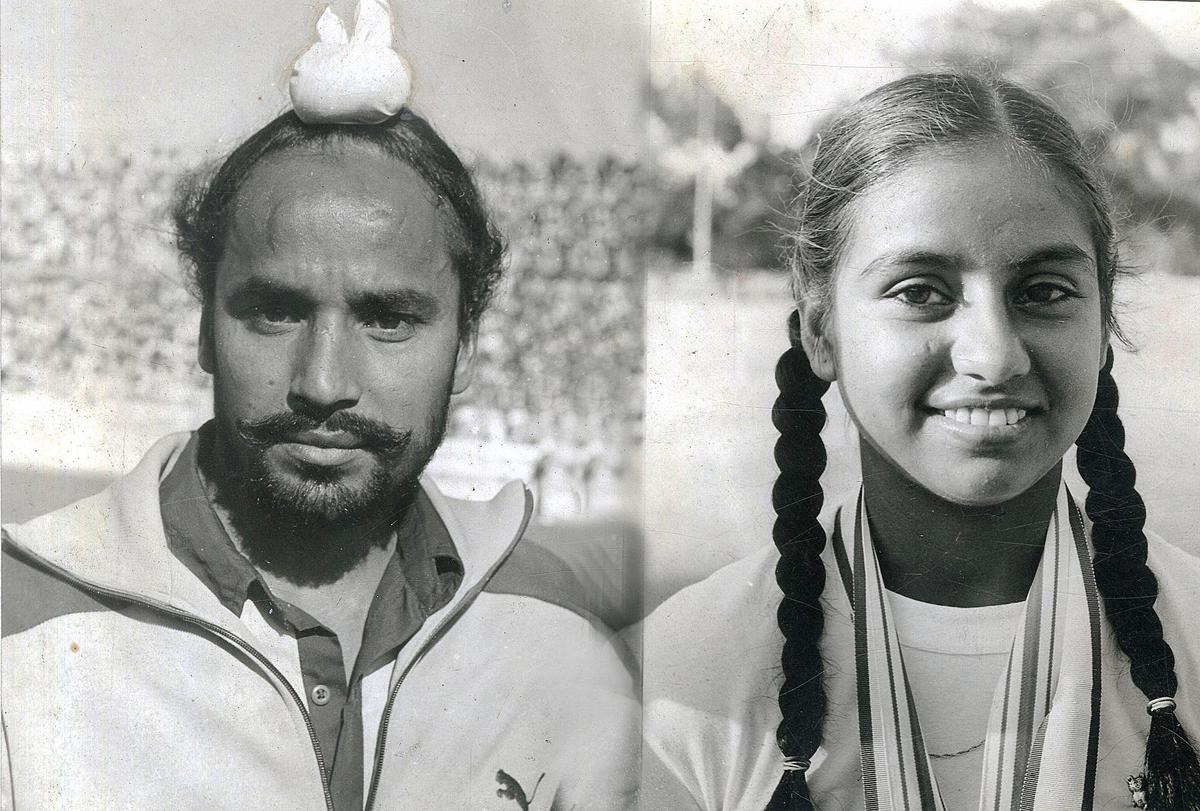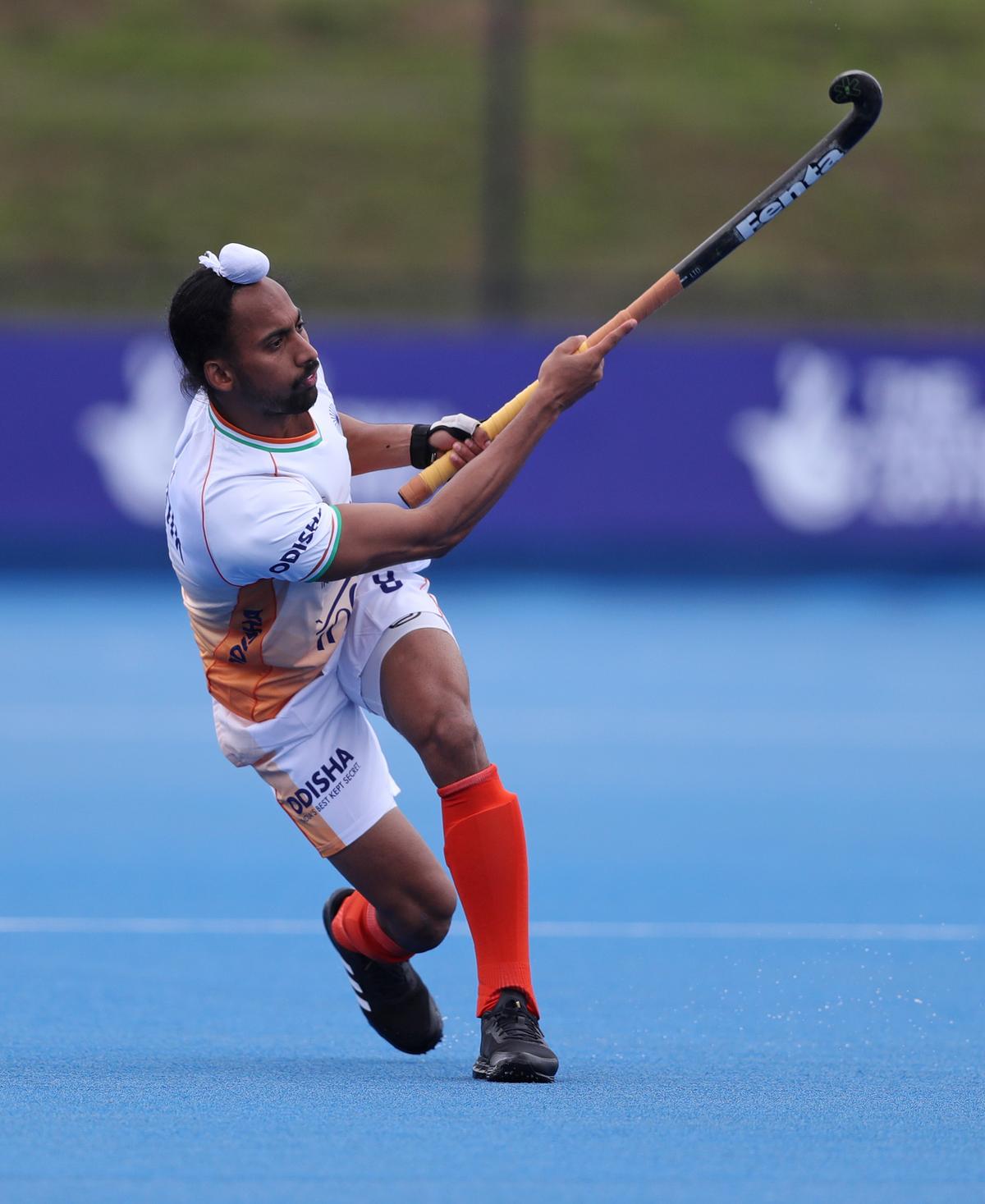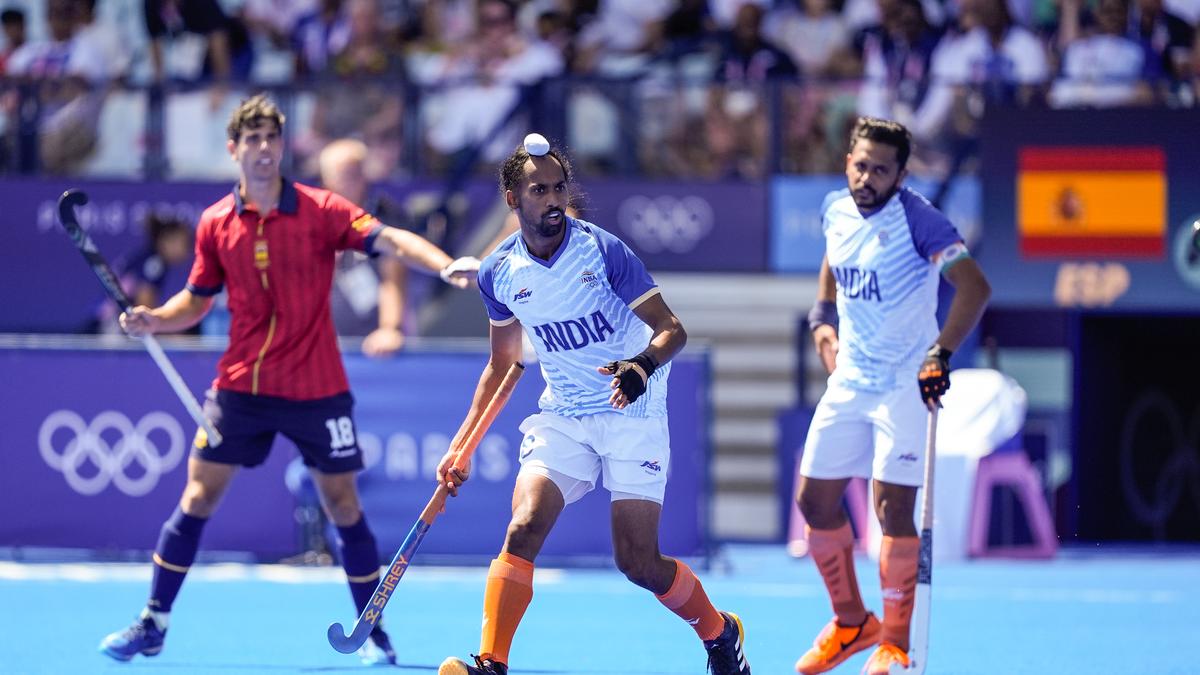100 years of Indian hockey: From Gurmail Singh to Hardik Singh, a storied legacy lives on
India’s hockey story is not just about medals but also about families who carried the game forward. From Dhyan Chand, his brother Roop Singh and son Ashok Kumar, to Lawrie Fernandes and his daughter Lorraine, generations have worn the Indian jersey with pride. The latest link is Hardik Singh, whose uncle and aunt once did the same.
One of Hardik Singh’s foundational memories as vice-captain of the Indian men’s team dates back to 2004, when India played Pakistan in the Amritsar leg of the ‘Dosti Series’ — a seven-match competition between the two nations.
What stands out for Hardik is not watching from the stands of the Guru Nanak Dev Stadium but how close he got to the action. “What I remember is that at half-time, my chacha took me down to the centre of the field and I went and hit a few balls,” recalls Hardik.
He was able to step onto the pitch in one of the highest-profile matches played in India because of the reputation his chacha, Gurmail Singh, enjoyed. Gurmail was not only an officer with the Punjab Police but also a member of the last Indian team to win Olympic hockey gold — at the 1980 Moscow Games.
While Hardik would later win two Olympic medals himself — bronze at both the Tokyo and Paris Games — he remembers being in awe of his uncle.
“I’d grown up hearing stories about his Olympic gold, and I always wondered what it would be like to have one of my own. But the funny thing is I never got to see his medal because he never had it up for display, and I was too shy to ask him,” he says.

A family of excellence: Hardik’s family comes from a village known for its hockey heritage. While his grand uncle Gurmail Singh was a member of the last Indian team to win Olympic hockey gold at the 1980 Moscow Games, Gurmail’s wife Rajbir Kaur, was part of the Indian women’s team that won gold at the 1982 Asian Games.
| Photo Credit:
Special Arrangement
A family of excellence: Hardik’s family comes from a village known for its hockey heritage. While his grand uncle Gurmail Singh was a member of the last Indian team to win Olympic hockey gold at the 1980 Moscow Games, Gurmail’s wife Rajbir Kaur, was part of the Indian women’s team that won gold at the 1982 Asian Games.
| Photo Credit:
Special Arrangement
No shortage of inspiration
Gurmail’s Olympic medal was one of five won by players from Khusropur, near Jalandhar in Punjab. “This is a village known for hockey. The saying used to be that when a child was born in Khusropur, they would place a hockey stick next to him,” says Gurmail.
Even within Khusropur, the family’s association with the sport stands out. Gurmail is the youngest brother of Hardik’s grandfather Preetam, who coached the Indian Navy team. Gurmail’s wife, Rajbir Kaur, was part of the Indian women’s team that won gold at the 1982 Asian Games. Hardik’s father, too, had been part of the national camp.
Their connection with the sport goes back even further. “My grandfather, Jagat Singh Rai, was originally from Pakistan. He wasn’t a hockey player but a wrestler. He was in the Army, and his son — my father, Gurdayal Rai — joined the 2 Sikh Light Infantry. He learnt hockey in the Army and that’s where our family’s connection to the sport began,” says Gurmail.
All six of Gurmail’s brothers played hockey, including Hardik’s grandfather. “When I was in 7th class my father became seriously ill. Before he passed away, he asked my eldest brother [Hardik’s grandfather] to help me become a good player. After he passed away, I was the one who was given the most support,” he recalls.
It was perhaps natural, then, that Gurmail would return the favour with Hardik. “When I was a child, my chacha would take me to Jalandhar to watch matches at the Surjit Singh Hockey Tournament. I’d watch those matches and think I’d be playing like them some day. He also told me stories about domestic and international players who had played in India. He once told me about Sohail Abbas, the Pakistani drag-flicker, who hit a shot so hard it tore the net,” recalls Hardik.
Different eras
Hardik relished these conversations. “Sometimes I’d wonder what it would be like if I played in previous eras like my chacha’s. I wondered if I would be as good. But things were so different that it’s hard to say. Back then you had to be on the field for 70 minutes with no rolling substitutions, so the pace was much slower. You could also take drag-flicks from inside the circle, so those were really hard to stop,” he says.

Hardik Singh in action during the FIH Pro League 2024..
| Photo Credit:
Getty Images
Hardik Singh in action during the FIH Pro League 2024..
| Photo Credit:
Getty Images
Gurmail agrees the game has changed, and not just at the elite level. “The facilities available now are far better than anything we had. We mostly played on grass and sometimes even that wasn’t there. But I can say with confidence that the level of competition was much higher simply because hockey was a mass sport then. Now it is mostly played in academies. It isn’t played as much at school or college levels,” he says.
Despite minor disagreements about the sport’s evolution, the bond between Hardik and Gurmail has always been defined by support and respect. When Hardik broke into the senior Indian team, Gurmail offered him advice.
“I told him what I had learnt. I advised him not to get into controversy. Respect everyone and work hard. Come first and leave last,” says Gurmail.
Supportive cousin
While Hardik respects and admires his grand uncle, the difference in age and seniority creates a natural distance, a gap that doesn’t exist with Gurmail’s son, Shubh.
“It’s strange because for a long time I didn’t think I was going to be the best player in the family. It was Shubh who I felt was really good. Everyone else thought so, too. After all he was the son of an Olympic gold medallist and an Asian champion in Rajbir aunty. I remember when we played tournaments at the academy or in the village, he would always be scoring goals.
“Unfortunately, he suffered a serious calf injury and stopped playing in 2020. Despite that, there’s never been a hint of jealousy. He’s been one of my biggest supporters. I’m lucky to have someone like him on my side.
“He was one of the first people I called after I won bronze in Tokyo. When I came back from the Olympics, he was at the airport, and he was in the jeep with me during our ride of honour around the city,” says Hardik.
When Hardik comes home, he often walks over to Gurmail’s house a few minutes away to spend time with Shubh or play video games. There he sees the Olympic gold medal that Gurmail finally mounted a few years ago. Even now, Hardik has never asked to hold it.
“There are too many emotions associated with that medal. I don’t think it would be fair or right for me to hold it. That’s the ultimate prize in hockey. I might have two bronze medals, but an Olympic gold is an Olympic gold. I have to win my own,” he says.
If another Olympic gold is to come from the family, Hardik believes it will have to be from him or his younger brother, who also plays the sport. Yet he is not sure future generations will follow the same path. “I can’t say for certain if there will be another generation of Olympians in our family. It’s harder for children now. There are so many distractions on social media. Everyone wants to be an influencer rather than put in the work to be a hockey player. And I think even my generation benefited from living in a joint family. More than hockey being in our blood, it was part of the culture we grew up in. Now it’s just me and Shubh who have played hockey. Most of my other cousins live separately, so it’s unlikely their children will grow up in the same culture that we did. What I had was special,” he says.
A few other Indian hockey families:
Dhyan Chand (Olympic gold) — Brother: Roop Singh (Olympic gold), Son: Ashok Kumar (World Cup gold)
Idris Ahmed (international) — Son: Atif Idris (international), Maternal grandsons: Danish Mujtaba (Olympics appearance), Hamza Mujtaba (international)
Khuda Dad (international) — Sons: Mohammed Yousuf (international), Sameer Dad (Olympics appearance), Grandson: Affan Yousuf (international)
Khuda Dad (international) — Sons: Mohammed Yousuf (international), Sameer Dad (Olympics appearance), Grandson: Affan Yousuf (international)
Lawrie Fernandes (Olympics gold) — Daughter: Lorraine Fernandes (Olympics appearance)
Ahmed Sher Khan (Olympic gold) — Son: Aslam Sher Khan (World Cup gold)
Harbinder Singh (Olympic medallist) — Brother: HJS Chimni (World Cup gold)
Harmik Singh (Olympic medallist) — Brother: Ajit Singh (World Cup silver), Nephew: Gagan Ajit Singh (Asian Games silver)
Ignace Tirkey (international) — Brother: Prabodh Tirkey (international)
Baboo Nimal (Olympic gold) — Brother: Hiranna Nimal (Asiad silver)
Baljit Singh Saini (international) — Brother: Balwinder Singh Saini (international)
Yuvraj Walmiki (international) — Brother: Devender Walmiki (international)
Anupa Barla (international) — Niece: Sunelita Toppo (international)
Pritam Siwach (international) — Son: Yashdeep Siwach (international), Daughter: Kanika Siwach (international)
Mandeep Singh (Olympic bronze) — Wife: Udita Duhan (international)
Published on Nov 21, 2025



